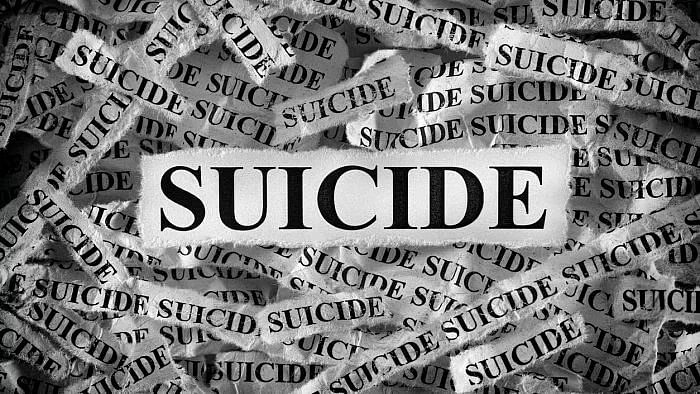
Representative image with the word 'suicide'.
Credit: iStock Photo
Bengaluru: A first-of-its-kind project to prevent suicides will be implemented by the state government in an additional eight districts in October, after a pilot study done in five government hospitals in Bengaluru showed promise.
The urban self-harm study (USHAS), being shepherded by the National Institute of Mental Health and Neurosciences (Nimhans) and the state health department, will expand to eight more districts, including Yadgir, Raichur, Kolar, Tumakuru and Mandya, said Dr Rajani Parthasarathy, deputy director, mental health, state health department.
Taken up under the National Health Mission (NHM) in October 2022, the project debuted in Victoria Hospital, Bowring Hospital, Jayanagar General Hospital, C V Raman General Hospital and KC General Hospital in Bengaluru.
Thirteen hospitals will have trained staff provide interventions over the next two years to prevent suicides in these districts. “We plan to expand this across the state in phases,” she said.
The pilot hospital-based surveillance project aims to establish a self-harm survivors registry, have trained social workers screen for suicidal risk among those admitted for self-harm and provide psychosocial interventions and coping strategies as the chances of re-attempt among survivors can be high.
Insights from the pilot study
Until September this year, a total of 7,960 self-harm survivors who were admitted at the emergency wards in these hospitals were followed-up for 1.5 years through regular telephonic interventions, Dr Anish V Cherian, principal investigator of the project and head of suicide prevention centre N-SPRITE at Nimhans, told DH.
According to him, at least 6,137 people received brief in-person interventions to help them cope with stressors leading to suicidal ideation in two to four sessions at the hospitals. This is out of a total of 8,568 cases of deliberate self-harm registered under USHAS.
“Of this, 608 people who had self-harmed died before they reached the hospital and couldn't access psychosocial support from us,” he said.
The re-attempt rate among survivors has remained at a steady 0.9% since last year, with 71 people having re-attempted self-harm out of 7,960 people who received interventions.
Suicide prevention programmes need a community-focused approach to reach out to people who can access the most primary levels of healthcare, such as PHCs, CHCs, and taluk hospitals.
This is especially required in Karnataka where, according to the latest NCRB records (2022), Karnataka reported 13,606 deaths by suicide out of a total of 1,70,924 deaths reported across the country.
“We have piloted the SURAKSHA (Surveillance system to track suicide and self-harm) community-based suicide prevention project at Channapatna taluk, which is also showing good results. USHAS is hospital-based surveillance; we need community integration of our interventions for them to have greater effectiveness,” said Dr Cherian.
Highlights - Psychological lifeline Urban self-harm study (USHAS) is being steered by Nimhans and the state health department Yadgir, Raichur, Kolar, Tumakuru and Mandya are among 8 dists where the study will be launched in Oct. Hospital-based surveillance project debuted in five government hospitals of Bengaluru. The project aims to establish a self-harm survivors registry, have trained social workers screen for suicidal risk and provide coping strategies
Quote - We have piloted the SURAKSHA (Surveillance system to track suicide and self-harm) community-based suicide prevention project at Channapatna taluk which is also showing good results. USHAS is hospital-based surveillance; we need community integration of our interventions for them to have greater effectiveness - Dr Anish V Cherian principal investigator of the project